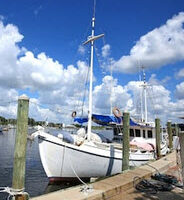Common Issues in Alcohol-Related Boating Accidents

The countdown to Memorial Day, which is the unofficial first day of summer, has begun. Many people will spend most or all of this weekend on the water. In Florida, practically anyone can operate a boat, even if they have no nautical training or experience. But that’s not the major problem. Alcohol is a factor in about a fifth of the fatal boat accidents in Florida.
Boats are hard enough to operate when the operator is 100 percent able to perform the task. Powered watercraft are difficult to steer and do not stop on a dime. Alcohol makes boat operation almost impossible. This substance inhibits motor skills and impairs judgement. So, just one drink is enough to cause an alcohol-related boat crash.
Compensation in an alcohol-related boating accident usually includes money for economic losses, such as medical bills, and noneconomic losses, such as pain and suffering.
First Party Liability in Alcohol-Related Tampa Boat Accidents
Typically, Tampa boating accident attorneys must use circumstantial evidence to establish alcohol impairment in these cases. Many times, the emergency responders are game wardens or park rangers. These well-trained individuals sometimes do not have advanced Breathalyzers and other such equipment. So, to establish impairment, victim/plaintiffs can use evidence like:
- Erratic vehicle operation,
- Slurred speech,
- Bloodshot eyes, and
- Unsteady balance.
Typically, this evidence only establishes alcohol consumption. But since impairment begins at one drink, if the tortfeasor (negligent actor) consumed any alcohol, the tortfeasor was probably also impaired for negligence purposes.
Additionally, many intoxicated boaters face DUI charges. In Florida, it’s illegal to operate any vehicle, such as a car, truck, motorcycle, or boat, under the influence of alcohol or another substance. In the Sunshine State, if tortfeasors violate the DUI law, they may be liable for crash damages as a matter of law. That’s true even if the tortfeasor escapes criminal punishment due to a technicality or a not-guilty verdict at trial.
Third Party Liability
Retracing the tortfeasor’s steps is also a good way to establish alcohol liability. Many people went from places that serve alcohol to the lake. In these cases, third party liability might apply as well.
Vicarious liability is very important in boat accident cases. Most auto insurance policies do not cover these losses, and most people buy little or no insurance when they rent boats. Without some form of vicarious liability, the victim may be unable to obtain fair compensation.
Under Florida law, bars, grocery stores, restaurants, and other commercial alcohol providers are vicariously liable for boat accident damages if:
- They illegally sell alcohol, and
- The illegal sale substantially caused the tortfeasor’s impairment.
In Tampa, illegal alcohol sales include sales to minors and sales to people who are habitually addicted to alcohol. Noncommercial alcohol providers, such as party hosts, might be vicariously liable as well, under doctrines like negligent entrustment or negligent undertaking.
Contact Dedicated Lawyers
Alcohol-impaired boaters often cause serious injuries. For a free consultation with an experienced Tampa boating accident attorney, contact The Matassini Law Firm, P.A. We do not charge upfront legal fees in negligence cases.
